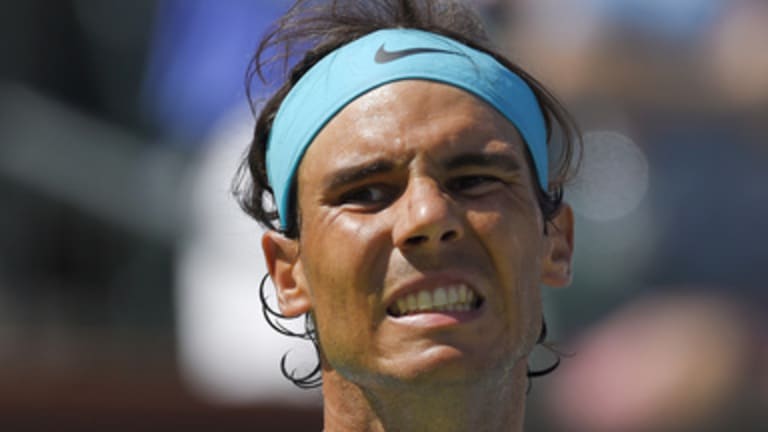Novak Djokovic walked back to the baseline, stared at his strings and flashed the slimmest hint of a smile. He had reached match point for the sixth time in his semifinal against Rafael Nadal at the BNP Paribas Open, and he had done it with a trademark touch of Djokovichian brilliance.
At deuce, Nadal had slid a good serve down the T, one that would have won him the point against virtually anyone else. But not against this opponent. Djokovic floated his body toward the middle of the court, reached out with a one-handed backhand, and blocked the ball to a perfect spot, a few inches from the far sideline. Then he followed it by thumping a forehand down the line for a crowd-silencing, momentum-killing winner. Nadal, who had fought hard to stay alive for the previous two hours, was deflated again, and so was the audience that had been behind him the whole way. This time, instead of worrying about who was or wasn't on his side, Djokovic seemed to be slyly enjoying his role as the tennis world’s big, bad, unbeatable No. 1.
And he should, because while his 7-6 (5), 6-2 win wasn’t the finest performance of Djokovic's career—he made 29 errors against 23 winners, was three of 12 on break points, and nearly gave away a 4-1 lead in the first-set tiebreaker—he has rarely looked so invincible. Nadal, a 14-time Grand Slam winner and a man who has beaten Djokovic 23 times before, threw everything he could at his old rival, and played his best tennis against him in two years. He broke Djokovic to start the match, held a set point in the first set and had the fans on their feet when he roared back to knot the tiebreaker at 5-5. Later, down 2-5 in the second set, Nadal scraped his way back from 0-40 and saved five match points with his customary cussedness. Yet Djokovic still beat him in straight sets, going away, looking stronger with every game.
“He’s loving this,” ESPN commentator Patrick McEnroe said as a smiling Djokovic bobbed and weaved his way through Nadal’s best punches.
